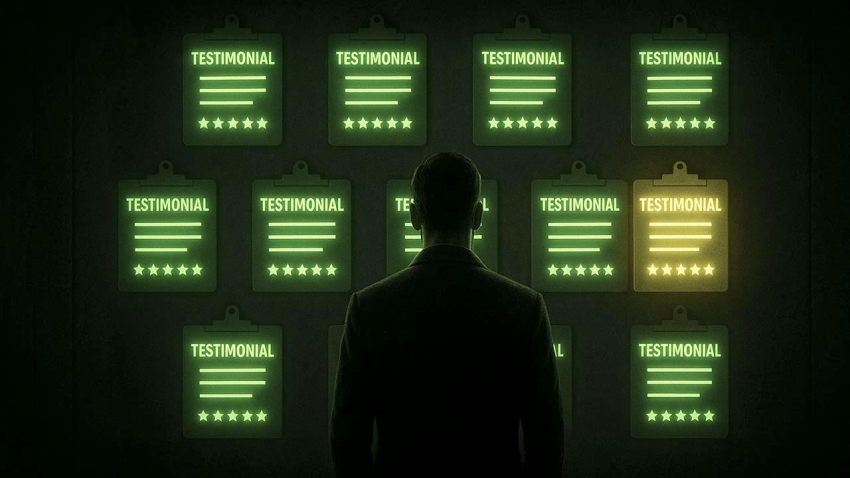Few forces in business are as powerful—or as misunderstood—as scarcity. The moment you tell people something is running out, demand spikes. It doesn’t matter if it’s sneakers, tickets, or software licenses—when availability is limited, desire skyrockets.
This is the psychology of scarcity, and it’s one of the oldest tricks in the sales playbook. Airlines use it when they show “Only 2 seats left.” Streetwear brands use it when they release limited-edition drops. Even local restaurants use it when they promote a “while supplies last” special.
But scarcity marketing isn’t just a trick. Done right, it taps into a deep human bias: the fear of missing out. Entrepreneurs who master it can drive urgency, accelerate sales, and build brands that people line up for.
Why Scarcity Works
Scarcity is powerful because it touches two primal instincts: fear of loss and social proof.
- Fear of loss. We value things more when they’re about to disappear. Losing an opportunity feels worse than never having it.
- Social proof. If others want something and it’s nearly gone, it must be valuable.
This combination makes scarcity one of the most effective drivers of action in marketing. People hesitate endlessly over abundant options—but when the clock is ticking or the shelves are emptying, hesitation disappears.
Types of Scarcity in Marketing
Scarcity isn’t one-size-fits-all. Businesses use different flavors to match their products and audiences.
- Time-based scarcity. Limited-time offers, flash sales, or countdown timers. Example: “Sale ends at midnight.”
- Quantity-based scarcity. Limited stock or exclusive drops. Example: “Only 100 units available.”
- Access scarcity. Exclusive access for members, early adopters, or insiders. Example: “Invite-only beta launch.”
- Seasonal scarcity. Products tied to specific events or holidays. Example: Pumpkin spice lattes.
Each type plays on urgency differently, but all share the same core principle: what’s rare feels valuable.
Case Study: The Streetwear Sellout
Streetwear brand Supreme built an empire on scarcity. Every Thursday, they drop limited products online and in stores. The supply is intentionally small, and fans know items sell out in minutes.
The result? Scarcity fuels demand. Items resell for multiples of their retail price, and the brand has become a cultural icon.
Supreme doesn’t just sell clothes. They sell the feeling of owning something others can’t. That’s the essence of scarcity.
Scarcity in Digital Businesses
Scarcity isn’t just for physical products. Digital entrepreneurs use it too.
- Online courses. Limited enrollment windows create urgency.
- Software. Early-bird pricing or limited beta invites reward quick action.
- Membership sites. Capping membership numbers makes communities feel more exclusive.
Digital scarcity can be just as effective—sometimes more so, because supply is theoretically infinite. Limiting access creates perceived value.
The Ethics of Scarcity
Scarcity is powerful, but it can backfire if abused. Customers eventually spot fake scarcity, and it destroys trust.
- Bad scarcity: Fake countdown timers that reset every day. Claims of “only 3 left” when supply is unlimited.
- Good scarcity: Real limited runs, authentic deadlines, and transparent offers.
The rule: scarcity must be real. If you manufacture urgency dishonestly, you may win short-term sales but lose long-term credibility.
How to Use Scarcity Without Breaking Trust
Entrepreneurs can apply scarcity effectively and ethically with a few guiding principles:
- Make it genuine. If you say supply is limited, it should be.
- Explain why. Limited supply feels natural when it’s tied to real constraints—production capacity, seasonality, or exclusivity.
- Offer real value. Scarcity should enhance a valuable product, not disguise a weak one.
- Respect your audience. Scarcity should feel like an opportunity, not manipulation.
Scarcity done right creates urgency without guilt.
Scarcity + Social Proof: A Powerful Combination
Scarcity becomes even more effective when combined with social proof. For example, when booking a hotel, you often see:
- “Only 1 room left at this price.”
- “23 people are viewing this property right now.”
This pairing doubles the psychological pull: not only is availability limited, but others are competing for it. Entrepreneurs can apply this principle to e-commerce, events, digital products, and beyond.
Scarcity in Action: Small Business Examples
You don’t need to be a global brand to use scarcity. Even local businesses can benefit:
- A bakery offering “only 50 loaves of sourdough daily.”
- A yoga studio selling early-bird passes for the first 20 members.
- A freelancer offering “limited client slots per month.”
Scarcity works at every scale. What matters is making your offer feel special, rare, and fleeting.
Mistakes to Avoid
Scarcity is simple, but misuse is common. Avoid these pitfalls:
- Overuse. Constant “limited” offers train customers to wait for the next deal.
- False claims. Nothing kills trust faster than fake urgency.
- Neglecting value. Scarcity can’t save a product no one wants.
Think of scarcity as seasoning, not the whole dish. Used sparingly and authentically, it enhances everything.
Final Word: Scarcity Sells—When It’s Real
Scarcity isn’t magic—it’s psychology. It works because people don’t want to miss out on valuable opportunities. For entrepreneurs, mastering scarcity means understanding when and how to apply it without crossing into manipulation.
Use scarcity to highlight value, reward action, and make offers feel special. Respect your audience, and scarcity will become one of the most effective levers in your sales strategy.
If you’re ready to pair scarcity marketing with other proven growth strategies, explore THE PLAN. It’s designed to help entrepreneurs combine psychology, strategy, and systems to scale smarter.













